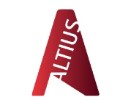The Unified Patent Court 2025
Brussels Local Division
1. General Information
1.1 Basic Information
There is one local division of the UPC Court of First Instance in Belgium. Its seat is located in Brussels in the building of the Federal Public Service Economy (ie, the Ministry of Economic Affairs), where the hearing room is also located.
The address is: Rue du Progrès 50, 1210 Brussels, Belgium. This is within walking distance of the Brussels North Station (Gare du Nord).
Contact can be made by email at: contact_brussels.loc@unifiedpatentcourt.org.
The telephone number is +32 2 277 74 01.
The registry is open on week days: Monday-Friday 9am-12pm and 2pm-4pm (local time), by prior appointment.
As the registry is administered by civil servants of the Belgian IP Office, please note that it is closed on Belgian public holidays: New Year’s Day (1 January), Easter Monday, Labour Day (1 May), Ascension Day, Whit Monday, National Day (21 July), Assumption of Mary (15 August), All Saints’ Day (1 November), Armistice Day (11 November), and Christmas Day (25 December).
Reference can also be made to the website of the FPS Economy, including a video presentation.
1.2 UPC Judges
The Brussels Local Division has one Belgian permanent judge, Samuel Granata, who has served as the presiding judge since June 2023.
Mr Granata previously worked as an attorney-at-law in a Brussels IP law firm and as a university assistant at the Catholic University of Law (Louvain, Belgium) before becoming a judge in the Antwerp Commercial Court.
He presently serves as a judge in the Court of Appeal of Antwerp (IP and Distribution Law Chamber) as well as in the Benelux Court of Justice.
While he no longer deals with Belgian patent cases, since all patent litigation has been centralised before the Brussels Courts since 2015, Mr Granata has presided over patent cases for several years at the Antwerp Commercial Court.
He was an external legal member of the Enlarged Board of Appeal (EPO) between 2012 and 2023, and was a member of EU Commission Expert Group on Licensing and Valuation of Standard Essential Patents between 2018 and 2020.
He acts as President of the Disciplinary Board of the Institute of Belgian Patent Agents.
He is a member of the Benelux Council for Intellectual Property, a permanent member of the Belgian Federal Advisory Board for Intellectual Property (industrial property section) and sits in the editorial board of the Belgian IP journal Intellectuele Rechten/Droits intellectuels (IRDI).
He is the co-author, together with Belgian lawyer Pieter Callens, of “The Unitary Patent and the Unified Patent Court”, a book published by Wolters Kluwer (of which the second edition was published in 2024).
As proceedings before the Brussels Local Division can be held in the three national languages (French, Dutch and German) as well as in English, the composition of the panel may vary depending upon the choice of language. If the proceedings are in Dutch, the panel is typically completed with two Dutch judges. If the proceedings are in French or German, it is likely that Mr Granata will be joined by French-speaking judges or by German- or Austrian-speaking judges, respectively.
1.3 Specific Procedural Issues
The Brussels Local Division will operate in accordance with the applicable procedural rules, in particular those set out in the Unified Patent Court Agreement (UPCA) and the Rules of Procedure (RoP) of the UPC.
The Local Division is expected to follow the jurisprudence set by the UPC Court of Appeal and, in the absence of such guidance, opt for a pragmatic and cautious approach taking into account the parties’ procedural rights. This approach is illustrated by the orders in case UPC_CFI_376/2023 (Nelissen v OrthoApnea) where the panel allowed the claimant to extend his infringement claim to include an argument based on equivalent infringement while granting the defendants additional time to filing their response. This decision was upheld by the Court of Appeal on 14 November 2024 (UPC_CoA_456/2024).
As mentioned in 1.2 UPC Judges, it is possible to hold proceedings in either French, Dutch, German or English, the choice of language being determined in accordance with the rules set out in the UPCA and the RoP.
1.4 Regional Division Competence
There is no applicable information in this jurisdiction.
1.5 Central Division Competence
There is no applicable information in this jurisdiction.
1.6 Court of Appeal: Purpose and Procedure
There is no applicable information in this jurisdiction.
2. Statistical Information
2.1 Types of Actions
As of 30 September 2025 and to the authors’ knowledge, the following actions have been initiated before the Brussels Local Division.
- Two applications for preservation of evidence ex Rule 192 RoP:
- Nelissen v OrthoApnea (UPC_CFI_329/2023); and
- Genentech – F. Hoffmann – La Roche v Organon – Shangai Henlius Biotech (UPC_CFI_407/2025 and UPC_CFI_408/2025).
- Two infringement actions:
- Nelissen v OrthoApnea (UPC_CFI_376/2023); and
- Cretes v Hyler (UPC_CFI_216/2024).
- One counterclaim for revocation in Cretes v Hyler (UPC_CFI_556/2024), which was joined to the above-mentioned infringement.
- One application for a preliminary injunction in Barco v Yealink (UPC_CFI_582/2024), presently pending on appeal (UPC_CoA_317/2025).
- One application for a cost decision ex Rule 150 RoP in OrthoApnea v Nelissen (UPC_CFI_131/2025).
The limited number of cases does not do justice to the Brussels Local Division, which is expected to become one of the preferred venues for parties seeking an alternative to the German local divisions or the “southern route” (before the French or Italian divisions), due to its multi-lingual approach, Belgium’s central location, its importance as a European logistics hub, and the involvement of highly qualified judges from various jurisdictions.
2.2 Substantive Hearings
To the authors’ understanding, there here have been two substantive oral hearings before the Brussels Local Division as of September 2025:
- on the infringement action in Nelissen v OrthoApnea (UPC_CFI_376/2023) on 6 December 2024, the first case to be pleaded before the Brussels Local Division; and
- on the PI action in Barco v Yealink (UPC_CFI_582/2024) on 14 February 2025.
2.3 Case Classification
The four patents litigated before the Brussels Local Division to date concern the following International Patent Classification (IPC) classes:
- A61F 5/56 – device for treating nighttime sleep disorders;
- A01D 45/06 – device and method for harvesting textile hemp; and
- H04L12/12 – method and system for making functional devices available to participants in meetings.
2.4 Time Lines
One can expect the Brussels Local Division to at least attempt to adjudicate cases on the merits within the one year timeframe (from filing to oral hearing) set out in the Preamble to the RoP.
In the first and only case decided on the merits up to date (UPC_CFI_376/2023), the Statement of Claim was filed on 23 October 2023, the oral hearing took place on 6 December 2024, and a decision was issued on 17 January 2025. It should be noted that this case involved several incidents which caused some delays (including a request to change the language of the proceedings and the previously mentioned objection to the argument based on equivalent infringement (see 1.3 Specific Procedural Issues).
In the only PI action decided to date (UPC_CFI_582/2024), the application for provisional measures was filed on 2 October 2024, the oral hearing took place on 14 February 2025, and a decision was issued on 21 March 2025. The small delay was probably due to the involvement of a co-defendant based in China.
In most cases, one can expect that oral hearings will be limited to one day.
2.5 Interaction Between Central and Local/Regional Divisions
There has been no decision to date by the Brussels Local Division on its interaction with other Local Divisions or with the Central Division.
In line with the pattern followed by other Local Divisions, the Brussels Division is likely to decide on the counterclaim for revocation together with the infringement claim. This was also the decision reached in Cretes v Hyler(UPC_CFI_216/2024 and UPC_CFI_556/2024).
3. Substantive Law
3.1 Topics Covered
The most important legal topics decided to date by the Brussels Local Division are the following.
- In Nelissen v OrthoApnea (UPC_CFI_329/2023), the Brussels Division took a rather liberal approach to the possibility of obtaining an order to preserve evidence, both in terms of the timing and urgency of the application and the applicable threshold. The same flexibility was seen in the orders issued in cases UPC_CFI_407/2025 and UPC_CFI_408/2025 where the Brussels Local Division granted discovery measures in respect of the alleged infringement of a pharmaceutical patent in a case where the alleged infringer had not yet obtained a marketing authorisation in Europe.
- The Brussels Division also ruled on literal and equivalent infringement in the same case on the merits (UPC_CFI_329/2023). Literal infringement was determined based on claim construction from the viewpoint of the average skilled person and by reference to the principles set out in Article 69 UPC and its Interpretative Protocol. The Division did not rule on an applicable test for equivalent infringement and rejected the infringement claim based on the lack of functional equivalence.
- In its cost decision of 25 July relating to the same case (UPC_CFI_131/2025), the Brussels Division ruled that the burden of proof on a party by virtue of Article 54 UPCA and Rule 172.1 RoP regarding a party's alleged “costs” is the same as for any other “facts” asserted by that party, regardless of the wording of Rule 156.1 RoP. The Brussels Division further upheld a broad interpretation of the term “representation costs” under Rule 152.1 RoP as including translation costs as well as travel and hotel expenses of a party’s representatives.
- In its decision of 21 March 2025 in Barco v Yealink (UPC_CFI_582/2024), the Brussels Division rejected a restrictive reading of its internal (territorial) competence under Article 33 (1) UPCA, in contrast to the principles under the Brussels I Recast Regulation where exceptions to the jurisdiction of the defendant’s home court are interpreted restrictively. Accordingly, the Brussels Division’s jurisdiction was confirmed against a Dutch (and Chinese) defendant. However, the application for provisional measures was rejected for lack of urgency, as the claimant had delayed its action for too long. This decision has been appealed and is currently pending before the Court of Appeal.
3.2 Leading Cases
The two most interesting decisions rendered to date by the Brussels Local Division are the decision of 17 January 2025 on the merits in Nelissen v OrthoApnea (UPC_CFI_376/2023) and the decision of 21 March 2025 on the PI action in Barco v Yealink (UPC_CFI_582/2024), as discussed in 3.1 Topics Covered. Although both decisions are well reasoned, it remains to be seen whether they can be viewed as “leading” on the legal issues they address.
3.3 Pending Cases
The proceedings on the merits between Cretes and Hyler (in respect of EP 3993602 and EP 4284152) appear to be still pending before the Brussels Division (UPC_CFI_216/2024 and UPC_CFI_556/2024).
3.4 Technically Qualified Judges
As far as the authors are aware, only two technically qualified judges have been appointed to date: Bernhard Ledeboer in a Dutch-language case and Steven Richard Kitchen in an English-language case.
It is not possible at this stage to identify any trend in how the Brussels Division will deal with technically qualified judges.
3.5 Influence of Prior Local Practice on Substantive Legal Decisions
The UPC is intended to operate on the basis of its own set of rules without interference by national practices or traditions. In its cost decision of 25 July 2025 in OrthoApnea v Nelissen (UPC_CFI_131/2025), the Brussels Local Division insisted that the claimant's reference to national practices of the country of its representatives (regarding the standard for proving representation costs) does not pre-empt the applicable UPC rules in this respect.
That being said, it is likely that some attitudes and practices prevailing in the Belgian judicial context will remain relevant in the UPC context. This is particularly the case where national rules apply, such as in the enforcement of an order to preserve evidence. Given the long-standing Belgian tradition of the saisie-contrefaçon, it should not come as a surprise that certain patentees may seek an order to preserve evidence or an order for inspection from the Brussels Local Division.
3.6 Court of Appeal Substantive Jurisprudence
There is no applicable information in this jurisdiction.
4. Procedural Issues
4.1 Hearing Structure
Given the limited number of hearings held up to date, it is not possible to identify any pattern or established practice.
Based on this limited experience, it is likely that a hearing in a standard case will take one day (morning and afternoon sessions), with pleadings from both sides, interspersed with questions from the Court and followed by rebuttals. It should not be expected that the panel or the judge-rapporteur will provide their preliminary opinion on any contentious issue, as this is not common practice in the Belgian judicial context.
4.2 Key Procedural Issues
Only a limited number of procedural issues have been decided to date.
- In the case on the merits in Nelissen v OrthoApnea (UPC_CFI_376/2023), the Brussels Local Division took a pragmatic approach allowing for the possibility for a party to extend the argumentation (ie, to invoke equivalent infringement) in light of the arguments raised by the defendant in its Reply.
- However, the Brussels Division decided in Cretes v Hyler (UPC_CFI_216/2024 and 556/2024) that a new argumentation by the defendant based on the alleged non-infringing nature of an amended product amounts to a declaratory action of non-infringement which can only be brought through a request to amend the case in application of Rule 263 RoP.
- In its cost decision relating to this case (UPC_CFI_131/2025), the Brussels Division ruled that a request to increase the recoverable costs ceiling must be submitted as early as possible and must, in principle, be considered tardy if made only during the cost procedure.
- In its decision of 21 March 2025 in Barco v Yealink (UPC_CFI_582/2024), the Brussels Division also held that Rule 19(1) RoP on preliminary objections only applies in cases on the merits and not to objections to applications for provisional measures.
4.3 Third-Party Access to Documents
To date, there has been no decision by the Brussels Local Division regarding the availability of documents to parties not directly involved in UPC proceedings.. However, it is expected that the Brussels Local Division will follow the guidance set out by the Court of Appeal.
4.4 Pending Procedural Issues
It does not appear that any substantive procedural issues are presently pending in the Brussels Local Division.
4.5 Influence of Prior Local Practice on Procedural Issues
See 3.5 Influence of Prior Local Practice on Substantive Legal Decisions and 4.1 Hearing Structure for a discussion on the apparent persistence of Belgian procedural practice.
To date, no witness depositions have been made before the Brussels Local Division. This is also not common practice before the Belgian courts.
4.6 Court of Appeal Procedural Jurisprudence
As mentioned in 4.3 Third-Party Access to Documents, one can expect the Brussels Local Division to adhere to the jurisprudence of the Court of Appeal in respect of procedural matters.
5. Economic Issues and Remedies
5.1 Case Value and Court Fees
There is no or little information available on this issue.
As discussed in 5.2 UPC Court Fees Compared to National Courts, court fees for Belgian court cases are very modest. Accordingly, the fees set out in the Decision of the Administrative Committee of the UPC of 8 July 2022 will likely be viewed as very high by Belgian litigants, particularly individuals and SMEs. An obvious response may be to limit the value of the case in order to limit the court fees due.
5.2 UPC Court Fees Compared to National Courts
The court fees at the UPC (which is designed to be self-financing) are very high in comparison with the court fees due in Belgian court cases. Apart from the cost of service by a bailiff (which is modest), the losing party in a Belgian court case will only be ordered to pay a fee of EUR165.
5.3 Costs Awards
One cost decision was issued on 25 July 2025 in OrthoApnea v Nelissen (UPC_CFI_131/2025) whereby the losing party was ordered to pay costs for an amount of EUR41,656.64 (subsequently corrected to EUR43,856.64 by decision of 19 August 2025), including representation costs limited to a maximum of EUR38,000 (corresponding to a case value of EUR250 as set out in the Schedule of Costs adopted by the Administrative Committee on 24 April 2023) and some other costs.
5.4 Damages
There is no applicable information in this jurisdiction.
6. The Future of the UPC
6.1 Advantages and Disadvantages of the UPC
As mentioned in 2.1 Types of Actions, the Brussels Local Division could become a credible alternative to the German and French divisions in particular, given Brussels’ central location, the multi-lingual approach and the availability of experienced judges from other divisions.
The Brussels Division also offers significant practical advantages, such as a modern and very accessible infrastructure and very helpful civil servants manning the registry.
6.2 Future Trends
The further development of UPC case-law by the Court of Appeal will be crucial to establishing the UPC as a trustworthy and competent court for resolving patent disputes.
How the UPC will handle its international jurisdiction following the CJEU decision in BSH v Electrolux (C-339/22) also remains to be seen.
6.3 The Future of National Patent Litigation
National patent litigation will remain relevant in Belgium. As the Belgian patent litigation practice is based, to a significant extent, on pharmaceutical patent cases, one can expect that the Brussels Enterprise Court (which has exclusively competence for patent cases in Belgium) will remain active for several years, given the reluctance of pharmaceutical companies to “opt in” their main patents.
In addition, the Belgian patent courts will continue to play a role in respect of national Belgian patents and the related areas falling outside of the jurisdiction of the UPC (customs disputes, contractual disputes, unfair competition, regulatory issues, etc).
6.4 Improvements to the UPC
Various questions remain unanswered, both at the practical and substantive levels, and it remains to be seen how in particular the UPC Court of Appeal will decide on a number of contentious issues.
The first two years of the UPC have been largely successful in establishing a new and efficient forum for patent litigation in Europe. However, as with any new system, there are areas for future improvement, both when it comes to enhancing the Court’s functionality and in the need to ensure it meets its foundational goals of accessibility and credibility.
Improving the CMS
The CMS has been a source of frustration for many users, with feedback highlighting a cumbersome, workflow-based system and frequent performance issues. The UPC has already acknowledged these shortcomings and is rolling out a new system, which is a welcome development. Future improvements should focus on creating a system that is not only robust and fast but also user-friendly. A new CMS should simplify the process of filing documents, provide clear and timely updates on case statuses, and reduce the administrative burden on legal representatives.
Increasing the Representation of SMEs
One of the key objectives of the UPC was to provide a more cost-effective and accessible litigation system, particularly for SMEs. While statistics show that SMEs are using the Court, they remain a minority of the total caseload. To improve SME representation, the UPC should further explore measures to lower financial barriers and simplify procedural rules. This could include more pronounced use of the Court’s fee-reduction system for SMEs and potentially creating dedicated resources or guides that specifically address the needs and challenges of smaller businesses navigating the system. The long-term success of the UPC depends on its ability to serve a diverse range of innovators, not just large corporations.
Enhancing Geographical Spread and Reducing Concentration
Current case statistics show a significant concentration of filings in a handful of local divisions, with German divisions ‒ particularly Munich and Düsseldorf ‒ receiving a disproportionately large share of infringement actions. While this may reflect established patent litigation trends in Europe, it risks undermining the court’s pan-European nature. The UPC should proactively work to promote the use of other local and regional divisions. This could involve highlighting the expertise of judges in other locations, providing more information on the languages available in various divisions, and ensuring a uniform quality of proceedings across the entire Court system. A more balanced geographical distribution of cases would strengthen the perception of the UPC as a truly unified and common court for all member states.
Avoiding a “Closed Circle” and Engaging with the CJEU
To maintain its credibility as a common court of the member states, the UPC must actively avoid becoming a “closed circle” of experts that is disconnected from the broader European legal framework. This requires two key actions. First, the Court must engage more transparently with the wider patent community, for example by providing clearer rationales for its procedural decisions and by ensuring a more transparent process for judicial appointments. Secondly, and critically, the UPC should not hesitate to refer questions to the CJEU when necessary to ensure the uniform interpretation of EU law. The UPCA explicitly provides for this co-operation, and the willingness of the UPC to seek guidance from the CJEU will be essential to its long-term legitimacy and its role as a key player in the European judicial landscape.
ALTIUS
Tour & Taxis Building
Avenue du Port 86C B.414
1000 Brussels
Belgium
00 32 2 4261414
00 32 2 4262030
info@altius.com www.altius.com



